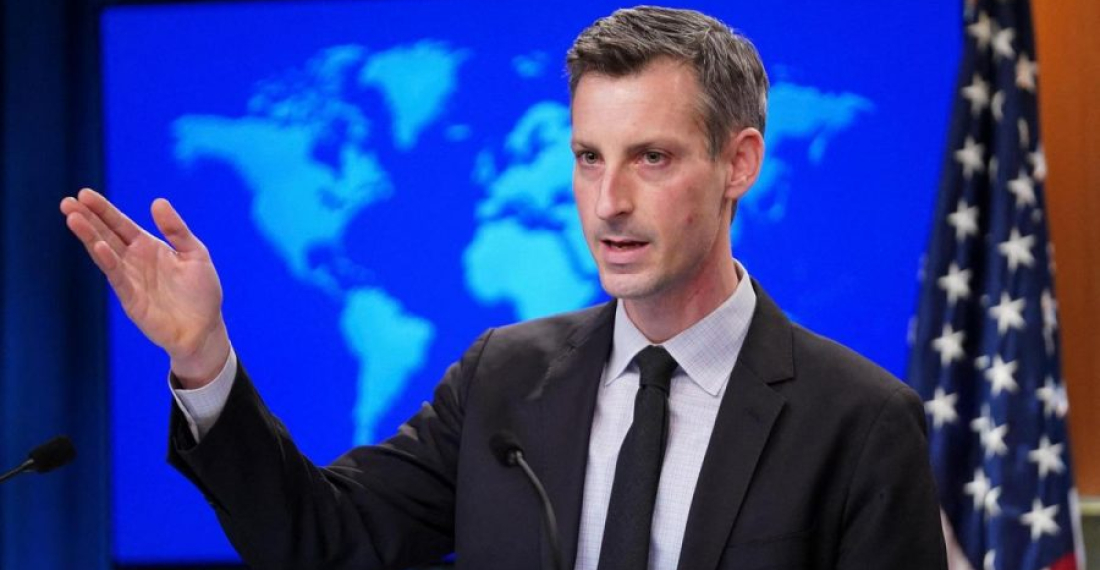The US Government is "deeply concerned" about the implications of a proposed law on so-called foreign agents "for freedom of speech and democracy in Georgia", said Spokesperson for the US Department of State Ned Price said in a press briefing on Monday (27 February).
Replying to a question from a journalist, Price said that the US has expressed their concerns "directly to the Government of Georgia now repeatedly".
He argued that the proposed law would "stigmatize and silence independent voices of citizens of Georgia who are dedicated to building a better future for their communities", adding that the US believes "such a law could potentially undermine Georgia’s Euro-Atlantic integration and the Euro-Atlantic aspirations that the people of Georgia have so clearly expressed time and again in recent decades".
What is the proposed law on foreign agents?
The draft law, which copies a similar law infamously introduced in Russia in 2012, would brand media, NGOs, and other civil society organisations that receive more than 20% of their funding from foreign sources as "agents of foreign influence".
This would require them to register in a Foreign Influence Agents Registry, and failure to do so would result in fines of up to 25,000 laris (€8,960).
The bill was introduced on 14 February by a group of pro-government MPs who formally left the ruling Georgian Dream party last year, albeit with the party’s support, to "speak openly" about an alleged Western conspiracy to "drag Georgia into war with Russia".
Concern about where the bill will lead freedom of speech in Georgia
Aside from criticism from the US, Georgian President Salome Zourabichvili has warned the draft bill brings Georgia "closer to the flawed Russian model and not to the European model". On Tuesday (28 February), the Georgian President vowed to veto it if approved by parliament.
The Dutch Ambassador to Georgia Maaike van Koldam - whose embassy is a major donor and "supporter of civil society organisations" in Georgia - has said, "strong civil society & media freedom are crucial in Georgia reform process and will continue to receive Netherlands’ full support. The draft law is inconsistent with EU aspirations and EU norms and values."
The original law passed in Russia in 2012 targeted NGOs and rights groups to begin with, but has since been expanded to target media organisations, individual journalists, YouTube vloggers, and almost anybody who receives money from outside of Russia. The bill has become a key tool of the Kremlin to clamp down on opposition and dissent.
On his part, the Chairman of Georgian Dream Irakli Kobakhidze has claimed that the proposed foreign agent law was not intended to limit free speech or anti-government protests, but rather to target "spies" and "extremists".







